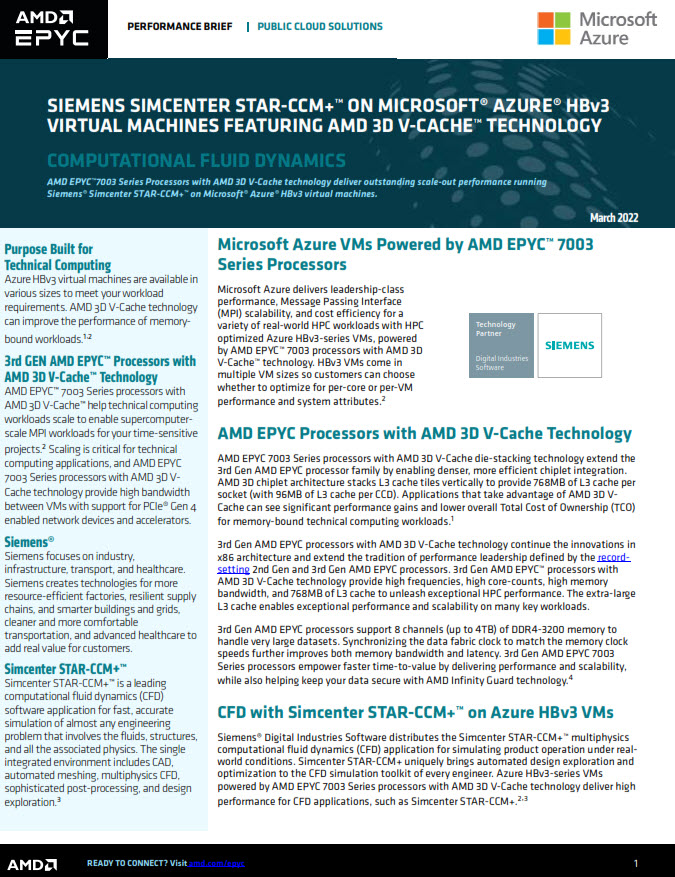 Supercomputing 2021 – November 15, 2021 – Penguin Computing today announced GovPOD (Government Penguin On Demand) HPC/AI Cloud, built for federal government agencies featuring a software, hardware and management platform designed to eliminate performance, scalability, and security challenges associated with traditional cloud computing environments.
Supercomputing 2021 – November 15, 2021 – Penguin Computing today announced GovPOD (Government Penguin On Demand) HPC/AI Cloud, built for federal government agencies featuring a software, hardware and management platform designed to eliminate performance, scalability, and security challenges associated with traditional cloud computing environments.
GovPOD HPC/AI Cloud is designed to enable federal government customers to access a bare-metal, HPC environment in the cloud without the investment in a complex and costly on-premises, infrastructure solution. “GovPOD HPC/AI Cloud is an on-demand, high-performance, cloud-based, secure HPC environment that flexibly supports AI, traditional HPC, and containerized work flows,” Penguin said.
GovPOD HPC/AI Cloud is a secure “as-a-service” offering that meets FedRAMP (Federal Risk and Authorization Management Program) security standards, according to Penguin. GovPOD HPC/AI Cloud is based on Penguin Computing’s AccessHPC solution built on proprietary compute-optimized hardware, with Red Hat Cloud Suite technologies, and Penguin Computing Scyld Clusterware and Scyld Cloud Manager software suite.
“As a market leader, Penguin brings high-performance compute environments to the government with the security and control they need without having to invest in on-premises infrastructure,” said Sid Mair, president of Penguin Computing. “Paired with our transparent pricing and expert technical support, we’re uniquely positioned to partner with federal agencies to provide integrated capabilities across their on-premises and public cloud environments.”
Key Points about Penguin Computing GovPOD HPC/AI Cloud
- Meets FedRAMP Security Standards. GovPOD HPC/AI Cloud consists of redundant computing sites rated to operate the entire security suite of standards as defined by NIST 800-53 and 800-171 for DFARS, delivering a FedRAMP moderate environment.
- Designed to meet DoD HPC Modernization Program Standards (HPCMP). GovPOD HPC/AI Cloud is designed to meet the requirements of the DoD HPCMP which includes monitoring cloud-based services to determine risk and maintain security. Penguin worked through several iterations of our Scyld capabilities and added recommendations from the DoD HPC Modernization Program into our AccessHPC/GovPOD HPC/AI Cloud offerings.
- Uses a Single-Tenant Compute Environment. Unlike multi-tenant cloud environments, the GovPOD HPC/AI Cloud compute environment is segregated to protect users’ privacy.
- Layers on Physical Security. GovPOD HPC/AI Cloud is hosted at a highly-secure, Tier III facility that undergoes an annual SSAE18 SOC 2 Type II audit.
- Ensures Data Security. All customer data lives solely at Penguin Computing’s United States, Tier III datacenter facility. Customers have complete control over access and persistence of their cloud data.
- Uses Encrypted Connections. All access to GovPOD HPC/AI Cloud is over secure, industry standard, encrypted protocols HTTPS+SSL, SSH through AES-128 or AES-256, or customized private VPN connections through AES-256.
- Penguin Computing is in the process of FedRAMP certification to ensure GovPOD HPC/AI Cloud meets all necessary requirements to be adopted by the federal government.
“At EarthCast Technologies, we are constantly pushing the boundaries of environmental prediction at the global scale. GovPOD HPC/AI Cloud’s scalable, bare-metal clusters enable us to concentrate on our customers and how to provide them the best solution, rather than having to purchase, run, and maintain our own HPC assets,” said Greg Wilson, CEO of EarthCast Technologies. “Penguin Computing’s customer support approach is truly outstanding. Access to their outstanding customer support team for GovPOD HPC/AI Cloud has been invaluable. Their innovation and the support needed to engineer, design, and test solutions for our customers has allowed us to expand our business into new sectors.”
Customers can utilize GovPOD HPC/AI Cloud beginning in January 2022 during the assessment period, and Penguin Computing expects to complete its FedRAMP moderate level assessment by the first half of 2022.



